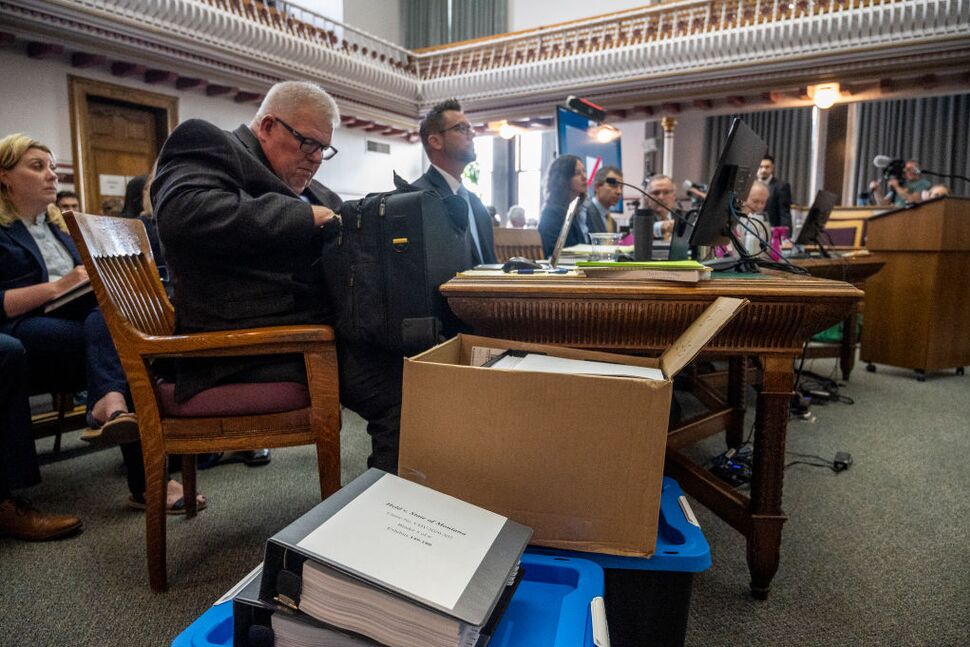A first-of-its-kind trial began in Montana this week, exploring the possibility that the state government’s support of the fossil fuel industry is at odds with its constitutional mandate to “maintain and improve a clean and healthful environment in Montana for present and future generations.”
Monday saw opening statements for the two-week trial where more than a dozen young plaintiffs will detail their personal experiences with extreme weather fueled by climate change, including wildfires and flooding.
Environmental advocates hope a favorable outcome in the case could propel climate change efforts in other states.
“Montana’s warming climate will have cascading environmental and economic impacts,” Roger Sullivan, a lawyer for the plaintiffs, said in opening statements on Monday.
But state leaders have called the case a “gross injustice.”
“Montana’s emissions are simply too minuscule to make any difference,” Michael Russell, an assistant attorney general, said. “Climate change is a global issue that effectively relegates Montana’s role to that of a spectator.”
The Best States for Natural Environment

What’s the Case About?
At issue in Held v. Montana is the state’s constitutional right to a “clean and healthful environment” and whether that should be interpreted as a requirement for the state to protect its residents from the impacts of climate change.
The judge for the case has significantly narrowed its scope in prior rulings, with the question at hand now being whether the state’s Environmental Policy Act, which does not require officials to consider climate impacts, is unconstitutional.
Even if the young plaintiffs are successful in proving their case, state District Judge Kathy Seeley has said she can’t tell the legislature how to address climate change, and experts say the case likely won’t have an immediate impact on the state’s fossil fuel-friendly policies.
Still, the plaintiffs hope to send a message to others, and experts say it could set legal precedent.
“We’re asking the government and the courts to do their job and protect us, along with the rest of Montana’s citizens and our incredible home state; this case is one big opportunity for the state to become a leader in preserving a safe, beautiful and prosperous future for Montana,” Grace Gibson-Snyder, a 19-year-old plaintiff, said.
Are There Other Climate Cases?
The case is one of several pending around the country and the first to make it to trial.
Our Children’s Trust, the environmental group behind the Montana case, has taken legal action in every state. One of the group’s other lawsuits in Oregon recently was allowed to proceed to trial. Another case from Hawaii youth plaintiffs is also set to go to trial.
One reason Held v. Montana made it to trial while other climate cases before it have been rejected is the state’s 1972 Constitution, which guarantees that the “state and each person shall maintain and improve a clean and healthful environment in Montana for present and future generations.”
Few other states – including New York, Pennsylvania and Massachusetts – have similar protections in their constitutions.
Mae Nan Ellingson, the youngest delegate at Montana’s 1972 constitutional convention, testified on Monday that environmental issues were a big part of the process.
“We wanted an environment that was clean and healthful, so it was a fairly long and contentious debate to ultimately get the words ‘clean and healthful’ included as descriptors of the environment,” she said.
















+ There are no comments
Add yours